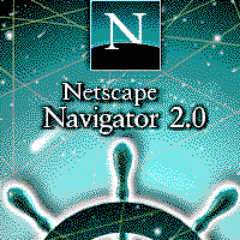 Steve Brazier
[2014-10-09]
Steve Brazier
[2014-10-09]
Starting Point Superstitions seem natural for humans (disclaimer: this may be a superstition). For a human starting out thousands of years ago, avoiding the cursed river was probably a good idea. People swimming in this river often disappeared without trace. This particular river may have, in fact, been full of crocodiles. Very well hidden crocodiles. Well maybe it wasn’t. Better safe than sorry (for a better more well founded explanation see here: New Scientist: Superstitions evolved to help us survive).
 Erika Heidi
[2014-09-12]
Erika Heidi
[2014-09-12]
Friday, 09:45. It’s my day off. As I wake up, a million thoughts come to my mind:
Oh! A new open source project that I would like to contribute to… What about the new framework that I wanted to try? I could also work on that idea for a new project I had one month ago. But the day is so beautiful, maybe I could get my bike and ride in the park to exercise a little.
Community It’s a word that a lot of people like to throw around as something they believe in. It’s a fuzzy word that makes humans feel warm and fuzzy inside. It is a way for a group of individuals to co-exist in a space of shared values.
Communities are useful, they unite us. They define a common goal or purpose. They often define social norms. They create entry points for newcomers to become familiar with any given subject of interest.
 Erika Heidi
[2014-09-03]
Erika Heidi
[2014-09-03]
Diversity: a hard and very delicate subject in IT these days. Every now and then, we see horrible things exposed on Twitter - harassments, hate, humiliation towards women or other minorities. And this is only the tip of the iceberg, since not everybody has the guts to expose such threats. Yet, many people seem to not believe this is actually happening. Or, at least, consider that this is not their problem.
 Joshua Thijssen
[2014-09-02]
Joshua Thijssen
[2014-09-02]
A strange and arrogant title if you read the title without context, but let me explain. I’m what people would call a regular conference speaker. I do not see myself as such, but I do spent a lot of time on conferences around the world. I talk about a broad range of subjects, resulting in speaking at a broad range of conferences. It’s really great being able to travel a lot and meeting lots of people.
If you’re looking for an account of the events at WeCamp, I have to give fair warning before you read this article. I’m sure there will be plenty of blog posts on the actual events and practical lessons at WeCamp, but I’m taking a different approach with this post. I experienced quite a few emotions on a very broad range of the spectrum, and I’d like to share those with you.
There are many people (myself included for a long time) that will work more and more when they have more stress. Whether it’s a deadline or simply too much work on your hands, you just start working longer, open your laptop when at home just to finish that one feature, skip lunch or ignore your RSI-breaks. While this may sometimes work, in the long run, this will only make you less productive.
I have two children, the oldest is five - a girl, and the youngest a boy of 2. Here’s some things I’ve learned by observing them…
1. Nobody has followed your exact path of learning This requires a little background info. My daughter was born after a difficult pregnancy, and she was born both premature (at 31 weeks) and dysmature (having the weight of an average 26 week old). She came into this world a tiny thing 33cm long and weighing just shy of a carton of milk; 940 grams.
 Erika Heidi
[2014-06-06]
Erika Heidi
[2014-06-06]
Language. Have you ever thought about how humankind came to develop a common set of sounds to represent things, in order to enable communication, as we know it ? It was a long, long road. Nevertheless, languages (all of them) are quite limited to express the formidable complexity inside our minds. How could you explain colors to a blind person? And are you sure “blue” for you looks exactly the same as “blue” for me?
 Erika Heidi
[2014-05-21]
Erika Heidi
[2014-05-21]
Last weekend, during the ending Q&A session of PhpDay Italy, an attendee asked the speakers what would be their best advice for other developers. This can sound like a “cliche” question, because there are a few obvious answers we can think about, like: “keep learning”, “contribute to open source projects”, “be open to new technologies”, and such. Don’t get me wrong: these are all great and very important advices. But I think all developers already know that, even those who don’t put said advices in practice.
 Erika Heidi
[2014-05-13]
Erika Heidi
[2014-05-13]
It’s a sunny morning, you feel great, you take your dog for a walk. Everything looks gorgeous, and you feel truly inspired. You feel like nothing could change your mood, until the moment when you stop at the front door of your home and you realize: you forgot your keys.
This true story happened with me a couple weeks ago. What really drives me crazy about it is the fact that this already happened before (TWICE), and, perhaps, it will all happen again!
 Steve Brazier
[2014-05-08]
Steve Brazier
[2014-05-08]
This post started out with me thinking about constructive criticism and how this affects developers. The area I want to focus on specifically is code reviews and how they can be made more positive. Most constructive criticism advice focuses on how to leave more effective feedback. I feel it’s also immensely helpful to be able to take as much as possible from any criticism.
Problem Early on in my development life my workflow went something like this: